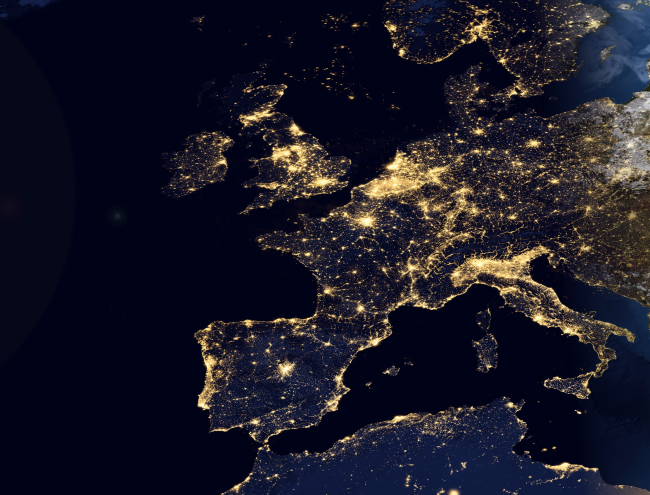German Energy Policy

On the 28th September 2010, Angela Merkel announced her government’s publication of an “energy concept” describing the target which the Federal Republic hoped to give itself regarding its energy consumption in 2050.
Although this text only directly concerns Germany, it is relevant to the other countries in the European Union and particularly France, as its implementation will influence intra-European electricity exchanges and, in the shorter term, its content may be used by Germany to exert an influence over European energy policy.
Let’s focus in on the key phrase in the text: “the German government will seek to increase the proportion of primary electricity consumption from renewable energy sources to 80% in 2050.” In the interim, nuclear energy production in Germany will cease.
Since the general consensus is that this objective cannot be achieved solely with German energy production from non-renewable sources, the solution can be sought in two ways:
1. Massive renewable electricity imports, notably from the Desertec project to transfer solar energy produced in Africa, which is subject to serious reservations; this method may orient intra-European energy transport networks towards Germany to the detriment of the efficiency of the interior electricity market.
2. Other electricity imports from its neighbours, allowing Germany to compensate for the irregularity of renewable sources, which will surely concern France, as it is the largest source of exportable power on Germany’s borders -but which might be hesitant to significantly increase electricity exports; or Russia, which is planning the construction of a nuclear plant at Kaliningrad..
Energy is at the top of the agenda for the Council of Heads of State and the EU government which meets in February. It is not for France to question Federal Germany’s projects, but to reiterate that France has chosen another model combining energy efficiency and provision of renewable sources, but putting considerable value on third- and, from around the middle of the century, fourth-generation nuclear electricity production that could make nuclear sustainable. This model allows France to today have the lowest greenhouse gas emissions, per tonne oil equivalent consumed, of all European member states.
The focus of the Council in early February should be the convergence of national policies with their own objectives and those of the community. We should not forget that the essential objective is bringing climate change under control at a low cost, and that the policies of the European Union should therefore point towards low carbon production. Germany cannot achieve a target of 80% renewables in its energy mix if it isn’t well-connected to all of its neighbours. They recognise as much in their concept paper. Nor can Spain, Denmark, the UK or others achieve high penetrations of renewables without an efficient European grid.
Let’s take the opportunity of the Summit to recognise and engage the essential steps necessary to integrate the European energy grids and markets if we really aspire to achieve our national goals. Otherwise, national statements of intent may well be politically gratifying, but they will be meaningless.
Related centers and programs
Discover our other research centers and programsFind out more
Discover all our analysesBrazil One Year Away from the October 2026 General Elections
Brazil’s general elections will be held on October 4, 2026, to elect the president, vice-president, members of the National Congress, governors, deputy governors and state legislative assemblies. For the presidential and gubernatorial elections, a second round will be held on October 25 if no candidate obtains a majority of the votes in the first round.
COP30: An Inflection Point for Climate Action and Governance
The 30th Conference of the Parties (COP30), opening in Belém, Brazil, on November 10th 2025, convenes at a perilous moment.
The Strategic Dimension of Skills in the Clean Industrial Deal
In the competitiveness and energy transition battles, the European Union (EU) must master a determinant factor: skills.
The Energy Transition Faces Geopolitical Challenges. How Can Ideological Divides Be Overcome?
President Trump’s positions and policies, combined with record coal consumption and booming global electricity demand, geo-economic confrontation, and widespread concerns about energy security, are changing the game when it comes to understanding realistic decarbonization trajectories. The war in Europe is intensifying competition between defense and transition budgets. This is also the case elsewhere in the world.













